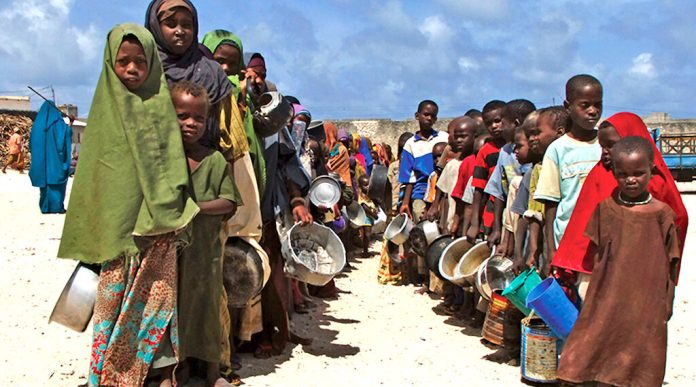A new Cadre Harmonisé report has shown that Lagos, Borno, Katsina, Kaduna, Jigawa, and Kano states have the highest number of people experiencing food and nutrition insecurity in the country.
The report noted that 17.6 million Nigerians in 26 states and the Federal Capital Territory suffer from food and nutrition crises.
The report showed that the top five food- and nutrition-insecure states include Lagos with 1,596,099; Borno, 1,553,499; Katsina, 1,314,123; Kaduna, 1,222,929; Jigawa, 1,063,633; and Kano, 1,006,542.
Food insecurity is defined as “when people do not have adequate physical and economic access to sufficient, safe and nutritious foods that meet their dietary needs and preferences for an active and healthy life.”
Speaking during a two-day media dialogue on child malnutrition, with a focus on nutrition financing in Port Harcourt, Rivers state, a Nutrition Officer with the United Nations Children’s Fund, Nkeiru Enwelum said, “Nigeria is currently ranked first in Africa and second globally in terms of the number of children who are malnourished.
“Current trends show that Nigeria may likely achieve its target for exclusive breastfeeding and wasting.
“The first 1,000 days of life includes the nine months of pregnancy and the first two years of a child’s life. Exclusive breastfeeding is very important during this period.
“Also, after at least six months of exclusive breastfeeding, a diverse diet is important. Data shows that only one in five infants breastfeed early, 23 percent); only one in three infants breastfeed exclusively, 34 percent; only one in three children 6 to 23 months receive a diverse diet, 31 percent.
“The first 1,000 days of life is very important to the overall development of any child, as 50 percent of the brain capacity is formed at birth, and 75 percent of the brain capacity is developed within the first two years of life.”
Also, UNICEF’s Communication Specialist, Geoffrey Njoku, called for increased allocation for nutrition, and timely release of funds.
Njoku said, “We have a nutrition problem in Nigeria, and it is particularly bad for children. Although UNICEF and other partners are supporting Nigeria to combat malnutrition, the government is not putting in enough money into ending the country’s nutrition problems. The government needs to put in its money into dealing with malnutrition.”


